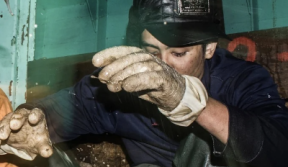The Generalized System of Preferences (GSP) provides qualifying developing countries with duty-free access to U.S. markets for a specific list of products. Eligibility for GSP benefits is predicated on a country fulfilling several requirements, including a clear showing that the government is “making progress” towards compliance with internationally recognized labor standards.
The GSP complaint mechanism allows any group or individual to file petitions with the U.S. Trade Representative (USTR) to initiate a review into the labor practices of any participating country. A committee composed of U.S. government officials reviews the petition and decides whether to hold public hearings where GSP recipient country and petitioner are allowed to testify.
By filing GSP petitions, ILRF seeks to pressure the U.S. government to use its considerable economic leverage to ensure that GSP beneficiary countries fulfill their obligations to take concrete steps to respect workers’ fundamental labor rights.
- On Uzbekistan: In 2007, ILRF filed a petition for the US Trade Representative (USTR) to revoke Uzbekistan’s GSP benefits due to the government’s systematic use of forced labor to grow and harvest cotton. Every year the Uzbek government forces over a million citizens to harvest cotton that ends up in brand-name retail and apparel supply chains. In 2012 and 2013, ILRF testified at hearings convened by the USTR to review Uzbekistan’s eligibility for GSP, with direct testimony from Uzbek human rights activists on the forced labor system.
- On Philippines: In 2007, ILRF filed a petition to suspend Philippines’ GSP benefits for maintaining a law that allowed for the imprisonment of workers for exercising their right to strike and the government’s failure to prosecute widespread harassment, threats, and extrajudicial killings of union leaders. The petition and related advocacy helped lead to the Philippines’ adoption of a new monitoring and review mechanisms for extrajudicial killings. USTR closed the investigation in 2014, despite the government’s failure to amend laws criminalizing the right to strike and continued problems with the extrajudicial killings of union leaders (over 137 since 2010, according to local NGOs).
- On Niger: In 2006, ILRF filed a petition raising concerns about the government’s failure to prohibit forced labor & trafficking, including a form of caste-based slavery where girls as young as 14 are sold into sexual slavery. After years of hearings and ILRF testimony, Niger responded by adopting the 2010 Anti-Trafficking Law and establishing a National Agency for the Fight against Trafficking in Persons (ANLTP). Despite these advances, ILRF has recommended keeping the petition open until the government can show tangible progress, including an increased number of prosecutions and convictions under its anti-trafficking and anti-slavery laws.
- On Bangladesh: In 2010, ILRF submitted a pre-hearing brief in support of the GSP review process on Bangladesh, which had commenced following a petition filed by the AFL-CIO in 2007. The brief highlighted the government’s harassment, detainment, and torture of civil society advocates, as well as its failure to enforce health and safety protections. After the Rana Plaza building collapse tragically took the lives of over 1,100 garment workers, the USTR finally suspended Bangladesh’s GSP benefits in 2013. While ILRF has since noted several signs of progress, it has continued to support the U.S. Government’s decision to withhold trade benefits until greater strides are made.

